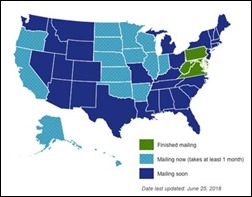Examples of a Boss Doing Something Heartfelt or Supportive
The owner discovered that one of the employees could not afford the additional cost of their honeymoon, and the newlyweds were planning to just stay home. The owner paid for a little getaway for the couple, including the food and the hotel suite.
Any time we had a collection at work (flowers for someone who lost a family member, baby shower for a co-worker, etc.), we would always end up with more than we thought we’d get. Turns out the boss at that time would find it how much had been given, then double it out if his pocket. He did it very quietly, not wanting attention. I airways looked at him differently after that.
Working extensively with HR to ensure that a co-worker with a new cancer diagnosis would be able to continue working while going through chemo
Years ago, we had an admin for our company who had to take a second job to support her family (single mom). Our CEO heard about it, and gave her enough of a raise so that she would not have to work all the time to make ends meet.
Our CEO at the time set up an employee fund to other employees to contribute too for a fellow employee that lost his entire home to a fire.
I think the best examples are the small, every day examples that assist a staff member to navigate their career in a way that supports their needs, whether that is offering new challenges that are right up their alley, supporting them as they seek work/life balance, or getting employee input as they craft plans for the organization. That is what I feel I have always had where I work (MEDITECH), and I can compare that to my spouse who tends to get treated like just one of many in an army of workers. When you truly know your staff, you can support them every day, but then also be there when major events occur.
A teammate went out with cancer who happened to be a single mom with kids. The C-suite quietly continued to give her a paycheck for a year until she passed away. It was a huge blessing to that family, although it hurt the team tremendously because they wouldn’t let her be replaced and it was a very small team. To this day it’s still a moral dilemma I struggle with, but I’m glad they were able to support her.
Before I started in HIT, I worked at a gas station / convenience store. One of my co-workers was a single mom, barely making ends meet. One day she called the store just after leaving work to say that her car had broken down right around the corner and could she leave it in the parking lot until she found someone to look at it. My boss knew she never put more than a gallon or two in at a time so he told me to grab the store gas can and go see if the issue was that she was out of gas. Turns out that was it. We got the car back to the store and he paid for a full tank of gas for her and a bag full of groceries to boot. It was a relatively small thing, but to this day I don’t think I’ve ever seen anyone more grateful than she was at the time.
Daily encouragement and opportunities to speak up if things feel icky. Reminders of work / life balance and ensuring that, despite being a team that is all over the country / globe, we are 1 @googlecloud @GoogleGenomics
Buying an analyst a case of Diet Mountain Dew for the day of a Go-Live 😎
I gave my employee his choice of hours and location to take care of his wife with breast cancer treatment. My wife went through it, too. It consumes the individual, who really needs the support probably fears losing a high-paying IT job. I said nope, work can wait. We’ll hire some consultants for now.
I used to work down the street from a homeless shelter. Of the three brothers that owned the store, one was known for his grumpy personality. That is, until he hired a homeless woman and gave her cash to cover expenses until her first paycheck. I never let him forget that I was aware of his “soft side,” and that seeing it changed my image of him for the better.
Donating money to help a single, older employee pay for an expensive operation for a beloved pet.
When I first started out on the Rev Cycle business, the owner of the company, a small mom & pop shop at the time, gave me a car because mine broke down. No excuses to not come to work! 🙂
When my daughter got sick, my employer allowed me to work remotely (2,500 miles away) for the past three years.
About 10 years ago, my new boss was starting our first cybersecurity department and we only had three employees. At Easter he went and bought us all very nice baskets with gourmet chocolate. Our department grew, but at least twice a year, this boss took all of us out to dinner with a guest to a local casino. After a very nice dinner, he got up and laid a $20 bill in front of each of his employees and said lets go have some fun. Just a few of the ways he supported us. Best guy I ever worked for and I try to repeat some of these items with my staff today.
My brother was killed, a victim of a robbery. Wrong place, wrong time. I was a mid-level manager in a software development organization, and had no notion that anyone would attend my brother’s funeral. I was surprised and touched that several people, including the two most senior execs and head of HR, made the 2 1/2 hour trip. My respect and appreciation for those folks rose to a new level as a result of that kindness. Thank you again Tom, Al, and Rita.
I had a project I had to complete, but the dreaded phone call from my son’s school nurse that my son had gotten sick at school. I let my manager know I’d pick up my son and finish the day from home so I could meet my project deadline. My manager assured me that my son was more important and told me to take the time I needed to finish it up. As a working parent, flexibility like this never goes unnoticed and I’m so thankful to have a manager that is so understanding and accommodating.
My last boss was a true nurturer. We had a colleague struggling with a terminal cancer. She arranged for ongoing cards to be collected, signed and sent so that there wasn’t a week that went by without kind words of support, strength, love, and family being shared. Not only was our colleague, but his entire family grateful for that support.
A boss in one division abruptly terminated my employment after many years of outstanding annual performance reviews. The only reason provided was, “I am going to take a different direction.” A dotted line boss in another division did not agree with what was taking place and brought me into his division to start a new business service line. My dotted line, now new boss, had a reputation for being very tough, having unreasonably high expectations, and impersonal. After this career changing event, I learned that you should not judge people by their outward persona. I am forever grateful for his support during an unexpected time of vulnerability and career difficulty that ultimately launched my career to the next level.
When my mother passed away several years ago, my CIO took the time to attend her calling. He had to drive for more than an hour (one way) to get to the funeral home at a time when I know he was extremely busy. He did this for just about everyone in the department who suffered the loss of a loved one.
Drove 3.5 hours one way for visitation of a co-worker’s parent. Pulled someone who had just been given bad news into their office so that person could react in private.
My boss organized my inpatient analyst team to help me move into a smaller house when I was dealing with my husband’s dementia and very poor health. I was so grateful to have the help and they really didn’t have to do that. My boss is fantastic and I am glad to be in his employ.



















































































I use a wiki and was exploring some of the extended character sets. I was startled to learn that the…